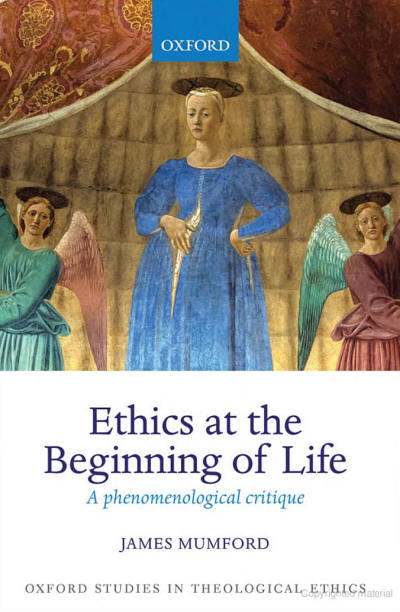Book Review
Ethics at the Beginning of Life
A phenomenological
critique
James Mumford
Oxford University Press
ISBN
9780199673964
 In
this closely argued work, James Mumford writes that the
prevalent ethical discourse on the beginning of life fails to
take into account the reality of human emergence. There is much
too much emphasis on human viability, for instance.
Abortion is deemed acceptable if the foetus is incapable of
living outside the mother's womb. But it is noted that
viability does not emerge until long after birth. We are
dependent beings and self-sufficiency is ultimately a mirage. It
follows from this that the principle of autonomy can never be an
absolute one.
In
this closely argued work, James Mumford writes that the
prevalent ethical discourse on the beginning of life fails to
take into account the reality of human emergence. There is much
too much emphasis on human viability, for instance.
Abortion is deemed acceptable if the foetus is incapable of
living outside the mother's womb. But it is noted that
viability does not emerge until long after birth. We are
dependent beings and self-sufficiency is ultimately a mirage. It
follows from this that the principle of autonomy can never be an
absolute one.
So far, so good. And yet, the author buys into aspects of the argument put forward by Judith Jarvis Thomson in her famous defence of abortion. He does not wish to defend the "absolutist position" against abortion:
" If homicidal self-defence is ever justified, then it is in the case when the mother has an abortion in order to save her life."
It is a pity that the author uses terms such as "homicidal self-defence" rather than having recourse to double-effect reasoning. However, he does note that Thomson moves from arguments based on self-defence to arguments based on self-ownership.
So, while one cannot agree with all of the views expressed in this work, it is clear that the author is attempting to show that human life ought to be respected from its very beginnings.
REVIEWED BY DR PRAVIN THEVATHASAN
